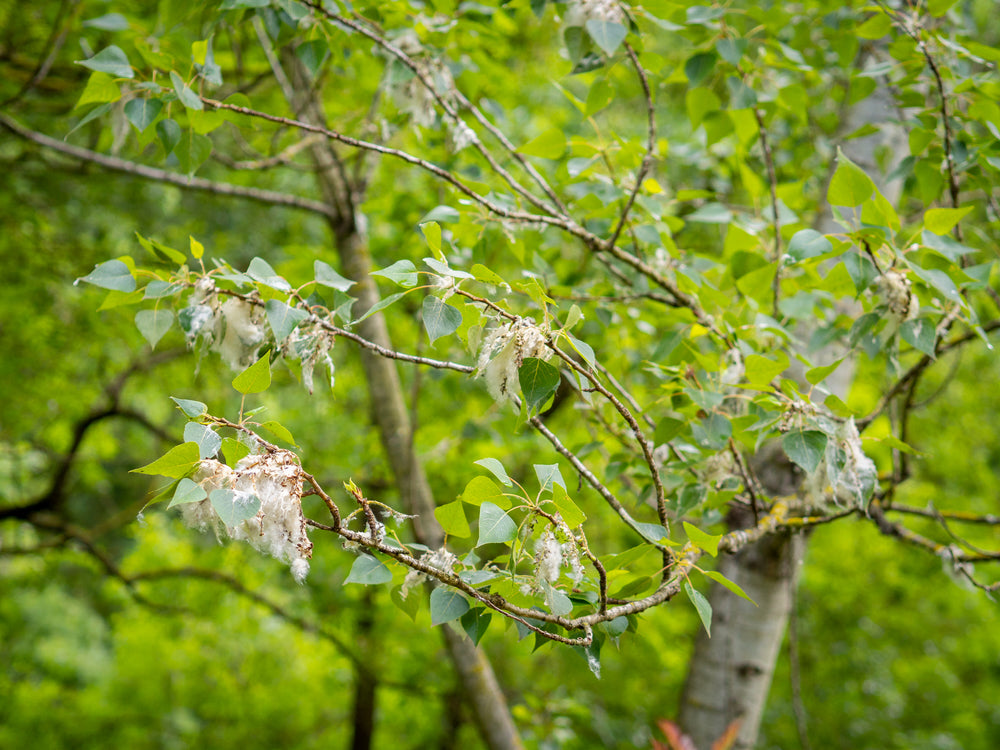Plant folklore - black poplar

The black poplar, Populus nigra, has been an iconic tree in Britain's woodlands and wetland areas for centuries. Believed to be one of the few species native to the UK since the end of the last glacial period over 10,000 years ago, it shared its space in the British countryside with the now virtually absent elm.
Its history is deeply intertwined with Britain's past, with ancient poplar trees featuring prominently in folklore and legends. Greek mythology says the black poplar was created from the bodies of Phaeton’s sisters after he was killed in a fatal attempt to drive in Apollo’s chariot. It is also said that the fallen, red, male catkins are the devil's fingers and will bring bad luck if they’re picked up.
These trees were also dedicated to Persephone and Hecate who were goddesses of the underworld, confirmed by Homer's placing of them at the entrance to Hades and confirming their connection with the afterlife.
If you don’t think you’ve seen a black poplar before, they're well represented in the background of Constable's famous painting ‘The Haywain’. The timber from black poplars has found many uses over the centuries - the soft, lightweight wood prized for construction, furniture making, boxes and crates. The trees were also grown for fuel wood and their branches were used to feed livestock and, with its open texture, the wood has been traditionally cultivated for matchstick production.
Sadly, the planting of native black poplars has declined over the centuries in favour of cultivated varieties. Today, the species is classified as endangered in Britain, with only around 7,000 wild trees remaining.







